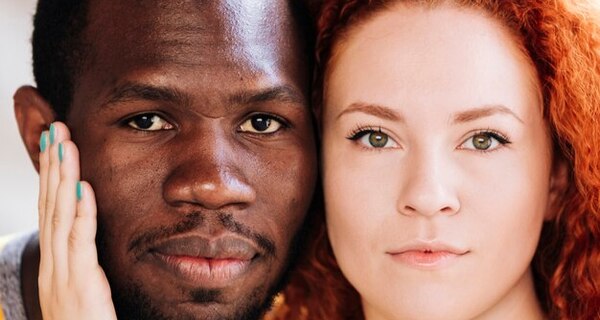-
Table of Contents
- Introduction
- Understanding the Impact of Cultural Differences on Communication in a Relationship
- How to Respect and Celebrate Cultural Differences in a Relationship
- Tips for Navigating Cultural Differences in a Relationship: Learning to Compromise
- Exploring the Benefits of Intercultural Relationships
- Strategies for Overcoming Cultural Barriers in a Relationship
- Conclusion
“Navigating cultural differences in relationships: Unlocking the key to a successful connection!”
Introduction
Navigating cultural differences in a relationship can be a difficult and complex process. It is important to understand the cultural backgrounds of both partners in order to create a successful and healthy relationship. This article will provide tips on how to navigate cultural differences in a relationship, including communication, respect, and understanding. By following these tips, couples can create a strong and lasting relationship that is based on mutual understanding and respect.
Understanding the Impact of Cultural Differences on Communication in a Relationship
In any relationship, communication is key. It is the foundation of any successful relationship, and it is essential to understand the impact of cultural differences on communication.
Cultural differences can have a significant impact on communication in a relationship. Different cultures have different values, beliefs, and customs, and these can all affect how people communicate. For example, some cultures may place a greater emphasis on respect and politeness, while others may be more direct and blunt.
It is important to be aware of these differences and to be respectful of them. It is also important to be open to learning about different cultures and to be willing to adjust your communication style to accommodate the other person’s culture.
It is also important to be aware of the language barrier that can exist between two people from different cultures. Even if both people speak the same language, there may be subtle differences in the way they use words and phrases. This can lead to misunderstandings and confusion.
It is also important to be aware of non-verbal communication. Different cultures may have different ways of expressing emotions and feelings. For example, some cultures may be more expressive with their body language, while others may be more reserved.
Finally, it is important to be aware of the different expectations that people from different cultures may have. For example, some cultures may expect more direct communication, while others may prefer more subtle communication.
Understanding the impact of cultural differences on communication in a relationship is essential for any successful relationship. It is important to be aware of these differences and to be respectful of them. It is also important to be open to learning about different cultures and to be willing to adjust your communication style to accommodate the other person’s culture.
How to Respect and Celebrate Cultural Differences in a Relationship
In today’s increasingly globalized world, it is becoming more and more common for people to form relationships with individuals from different cultures. While this can be a rewarding experience, it can also be challenging. It is important to respect and celebrate cultural differences in order to ensure a healthy and successful relationship. Here are some tips for doing so:
1. Learn about each other’s cultures. Take the time to learn about each other’s cultures, including their history, values, and traditions. This will help you to better understand and appreciate each other’s perspectives.
2. Respect each other’s beliefs. It is important to respect each other’s beliefs, even if they differ from your own. This means being open to discussing different points of view and being willing to compromise.
3. Celebrate each other’s cultures. Celebrate each other’s cultures by participating in activities that are meaningful to each other. This could include attending cultural events, trying new foods, or learning about each other’s languages.
4. Communicate openly. Open and honest communication is essential in any relationship. Make sure to talk about any issues or concerns that arise due to cultural differences.
By following these tips, you can ensure that you are respecting and celebrating cultural differences in your relationship. Doing so will help to create a strong and lasting bond between you and your partner.
Tips for Navigating Cultural Differences in a Relationship: Learning to Compromise

Navigating cultural differences in a relationship can be a challenge, but it can also be a rewarding experience. Learning to compromise is key to making a relationship work when there are cultural differences. Here are some tips for navigating cultural differences in a relationship and learning to compromise:
1. Respect each other’s cultures. Respect is essential in any relationship, but it is especially important when there are cultural differences. Respect each other’s cultures and be open to learning about them.
2. Communicate openly. Communication is key in any relationship, but it is especially important when there are cultural differences. Talk openly and honestly about your cultural differences and how they affect your relationship.
3. Be willing to compromise. Compromise is essential in any relationship, but it is especially important when there are cultural differences. Be willing to compromise and find a middle ground that works for both of you.
4. Celebrate each other’s cultures. Celebrating each other’s cultures is a great way to bridge the gap between your cultures. Find ways to celebrate each other’s cultures and learn more about them.
5. Seek help if needed. If you are having difficulty navigating cultural differences in your relationship, don’t be afraid to seek help. A professional counselor or therapist can help you work through any issues you may be having.
Navigating cultural differences in a relationship can be a challenge, but it can also be a rewarding experience. Learning to compromise is key to making a relationship work when there are cultural differences. By respecting each other’s cultures, communicating openly, being willing to compromise, celebrating each other’s cultures, and seeking help if needed, you can successfully navigate cultural differences in your relationship.
Exploring the Benefits of Intercultural Relationships
Intercultural relationships are becoming increasingly common in today’s globalized world. As people from different cultures come together, they bring with them a wealth of knowledge, experiences, and perspectives that can be beneficial to both parties. Here, we explore some of the key benefits of intercultural relationships.
First, intercultural relationships can help to foster greater understanding and appreciation of different cultures. By engaging with someone from a different culture, we can learn more about their customs, beliefs, and values. This can help to break down stereotypes and create a more open-minded attitude towards different cultures.
Second, intercultural relationships can help to promote mutual respect and understanding. By engaging with someone from a different culture, we can learn to appreciate and respect their beliefs and values, even if they differ from our own. This can help to create a more harmonious relationship between people of different cultures.
Third, intercultural relationships can help to create a more tolerant and inclusive society. By engaging with someone from a different culture, we can learn to accept and embrace diversity. This can help to create a more tolerant and inclusive society, where everyone is respected and accepted regardless of their cultural background.
Finally, intercultural relationships can help to create a more vibrant and dynamic society. By engaging with someone from a different culture, we can learn to appreciate and celebrate the unique contributions that different cultures can bring to our society. This can help to create a more vibrant and dynamic society, where everyone is valued and respected.
In conclusion, intercultural relationships can bring a wealth of benefits to both parties. By engaging with someone from a different culture, we can learn to appreciate and respect their beliefs and values, foster greater understanding and appreciation of different cultures, create a more tolerant and inclusive society, and create a more vibrant and dynamic society.
Strategies for Overcoming Cultural Barriers in a Relationship
Cultural barriers can be a major obstacle in any relationship. Whether it’s a romantic relationship, a friendship, or a professional relationship, cultural differences can create misunderstandings and tension. Fortunately, there are strategies that can help you overcome these barriers and build strong, meaningful relationships.
1. Learn about each other’s culture. One of the best ways to bridge the gap between two cultures is to learn about each other’s culture. Take the time to learn about the other person’s language, customs, values, and beliefs. This will help you understand each other better and create a stronger bond.
2. Respect each other’s differences. It’s important to remember that cultural differences are not bad. They are simply different. Respect each other’s differences and be open to learning from each other.
3. Communicate openly and honestly. Communication is key in any relationship. Make sure to communicate openly and honestly about your feelings and opinions. This will help you understand each other better and create a stronger bond.
4. Celebrate each other’s culture. Celebrating each other’s culture is a great way to bridge the gap between two cultures. Celebrate each other’s holidays, traditions, and customs. This will help you appreciate each other’s culture and create a stronger bond.
5. Be patient and understanding. Cultural differences can be difficult to navigate. It’s important to be patient and understanding when dealing with cultural differences. This will help you build a strong, meaningful relationship.
By following these strategies, you can overcome cultural barriers and build strong, meaningful relationships. Remember to be patient, open-minded, and respectful of each other’s culture. This will help you bridge the gap between two cultures and create a strong bond.
Conclusion
Navigating cultural differences in a relationship can be a challenging but rewarding experience. It is important to be open-minded and respectful of each other’s cultures, to communicate openly and honestly, and to be patient and understanding. By taking the time to learn about each other’s cultures, couples can build a strong and lasting relationship that is enriched by the unique perspectives and experiences of each partner.





